On the colonised planet Mars, botanist Kengo Manaka dreams of finding the perfect place where a flower he cares for will be able to bloom. He sees a vision of a mysterious woman, as well as the arrival of Giants of Darkness. Meanwhile the Sizuma Foundation study the ruins of an Ultra-Ancient Civilisation, believed to have lived on Mars over 30 million years ago. When a monster attacks, Kengo is able to call upon the light within the ruins to merge with a mysterious statue - becoming the Giant of Light, Ultraman Trigger!
Soon after Kengo travels to Earth, where he is drafted into GUTS-Select - a organisation formed to defend the world from monster attacks. Here he meets Yuna, the daughter of the Sizuma Foundation's president Mitsukuni Shizuma. Also on the team is his adopted son Akito - a genius engineer who both designed GUTS-Selects' arsenal and studies the Ultra-Ancient Civilisation. Together they discover the secrets of the past that not only connect Trigger to the revived Giants of Darkness, but both Kengo and Yuna as well.
Right off the bat, a tagline like "New Generation Tiga" gives off a number of different connotations. Taken literally it can quite simply mean the story of Ultraman Tiga for a new generation, but with Ultraman Trigger celebrating the 25th anniversary of Tiga (as well as the knowledge of how much Tsuburaya love their anniversary productions) there was a certain amount of expectation that came with the series as well. Would Trigger be a (whether direct or spiritual) sequel to Tiga? When the series was first leaked there was even (false) speculation that Trigger could even be a quasi-replacement for Tiga - giving Tsuburaya the opportunity to use a similar character more freely without the awkward character impositions that surround Tiga's host Daigo these days (for more context on that, look no further than Ultraman Chronicle Z: Heroes' Odyssey). Though the initial rumours around the latter were far stronger than what we actually got, in some respects Ultraman Trigger is a little bit of all these things. While certainly not an outright replacement for Tiga in any sense of the word, Ultraman Trigger is undoubtedly a means of creating a Tiga-like Ultra that better fits the New Generation Hero mould. It's a mould that's suited the franchise pretty brilliantly since Ultraman Ginga all the way back in 2013, culminating in fan-favourite Ultraman Z in 2020. There's no doubt that Ultraman has been on a winning streak of late thanks to the New Generation formula, but unfortunately it's that very formula that proves to be Trigger's biggest problem.
It doesn't start out that way though. Ultraman Trigger begins with premiere that feels like a departure from the New Generation template, channelling both Ultraman Tiga and the more mythological origins of the early Heisei Ultraman series in all the best ways. From the Martian to the discovery of an Ultra-Ancient Civilisation, it's a far cry from the closely-interlocked main Ultraman universe that all of the recent shows have shared. Similarly with a power set directly mirroring Tiga himself Trigger immediately stands out - there's no legacy heroes or fusion powers here, just a trio of simple form changes that each highlight a specific aspect of Trigger's abilities (an all-purpose multi type, power, and sky). Though the colonised Mars may not look all that different to modern day Japan, the little touches are enough to give Trigger it's own unique feel - whether it be the red skies or Trigger's debut fight against a rocky Martian landscape.
It's a strong start that immediately proves to be little more than that, as the action quickly shifts to Earth and the show enters far more familiar territory. The visuals, though as slick as always, don't bring much new to the table and some of the choices made when it comes to the episodic stories are a little questionable. As an Ultraman Tiga anniversary series one would expect Trigger to pay homage in the same way the other New Generation Heroes have to the Showa era, but in reality it still seems just hung up on that era of the franchise. Rather than have a myriad of Tiga monsters appear it's the usual mix of familiar faces and New Generation kaiju, with a few obscure ones thrown in for good measure. While there are a handful of Tiga favourites like Golba (a fusion of Golza and Melba), Gazort and the Kyrieloid, there's just as many foes from Ultraman or even Ultraman 80 present as well. It isn't that a mix of monsters is a bad thing, but rather that it makes the Tiga aspects feel a lot less significant. The legacy gimmick aspect hasn't been completely axed from Trigger either, this time taking the form of kaiju-themed Hyper Keys. Though considerably less egregious than previous Ultra gimmicks, it's still another avenue that Trigger uses to draw from any other series in the Ultra franchise.
It's not just in references that Trigger turns to the rest of Ultraman far too often either, with four episodes of it's already tight 26-episode run taken up by both an Ultraman Z crossover and a Ultraman Ribut crossover/teaser for the forthcoming Ultra Galaxy Fight: The Destined Crossroad. It's not that the Z crossover isn't fun (it's actually some of Trigger's better episodes), it's that the time could have easily been spent developing things elsewhere. Z is meeting Trigger in the forthcoming Ultraman Trigger: Episode Z movie anyway. Meanwhile The Destined Crossroad doesn't even have a confirmed release date yet, so hyping audiences up so far in advance just to coincide with a prequel episode feels a little hasty. It's great to see Ribut getting his dues in a flagship Ultraman title, but it's not very "New Generation Tiga" either.
That isn't to say Trigger completely forgets about Tiga, rather that it chooses to reference it through a number of facsimiles and story parallels. GUTS versus GUTS-Select for example, or even just how Trigger's design and form changes are just a direct mirror of Tiga's. But curiously the bulk of Trigger's story doesn't derive from Tiga's actual series, but rather it's epilogue movie The Final Odyssey. While perhaps odd to pick on such a specific piece of Tiga (particularly one that came four years after the series first started), there's no denying that the characters and themes of The Final Odyssey are perfect for expanding into a full series.
Sadly though anything else more directly linked to Ultraman Tiga often just feels like lip-service, which is something particularly emphasised through the character of Mitsukuni Shizuma. As well as the wealthy benefactor of GUTS-Select with ties to all the main characters, it's eventually revealed that Shizuma is a former member of Tiga's own GUTS team - having travelled through a space-time vortex and wound up in the alternate universe Trigger takes place him. This would have been the perfect place to bring in a veteran Tiga character and in any other Ultraman series it feels like it would have almost certainly been the case, but for whatever reason Trigger decides to just create a brand new character and claim him to be a remnant of Tiga's world. I don't think anyone was expecting Daigo or any major GUTS players to show up, but literally any character could have worked in this context. Not only would the end product be exactly the same, but it would properly cement that anniversary element Trigger so desperately wants to grasp onto. Without it, so many of the scenes meant to directly reference events from Tiga feel at best hollow and at worst unearned. Even when Tiga himself shows up to aid Trigger it lacks gravitas - something that was present when Tiga appeared in the Ultraman X movie five years prior.
It's frustrating because while Trigger manages to get so much wrong, there's a whole lot of good in there as well. At the heart of Ultraman Trigger is the theme of identity, something that is emphasised through numerous members of the principle cast. From the very beginning Kengo is the perfect protagonist for an audience still very much feeling the effects of the COVID pandemic - an infectious optimist with the equally infectious catchphrase of "Smile Smile". In becoming Ultraman Trigger, Kengo not only has to balance this new identity in the present but also come to terms with the past as well. Yuna is presented with a similarly lofty legacy to live up to - inheriting the power of her ancient ancestor Yuzare and source to the Eternity Core, a source of immense power. Finally Akito quickly has to comes to terms with the fact that, despite being the one to develop Trigger's arsenal, his is a role of support rather than to become Ultraman himself. Admittedly the handling of these isn't always perfect, with Yuna repeatedly lacking agency and instead either being an object of affection for the others or simply the plot device to get the story moving. But it is at the very least sincere with them, and the relationship they share as well as the support they offer each other is one of the show's strongest aspects.
The explorations of identity don't stop with those three either, with the treasure hunter Ignis proving to be one of Trigger's most fascinating characters. The survivor of a planet destroyed by the Giants of Darkness, behind Ignis' cheer exterior lies a man consumed by guilt and vengeance. His path for revenge makes him both friend and foe across the series, consuming the darkness Trigger has shed to use for his own purposes. Though his arc is stretched thinly over the course of the series, Kei Hosogai plays him with such personality that you could help but wonder what a series with him as the protagonist would be like. Other reflections of self/identity come from the Giants of Darkness themselves, particularly in the latter half of the series where their unity begins to crumble. Their former relationship with, as well as Ignis own adoption of, Trigger's former persona is a fascinating element of the show that particularly stands out amongst all the mediocrity. As they come to terms with what they see as Trigger's "betrayal" and rebirth, Darrgon begins to contemplate his own role in the universe while Hudram turns to treachery. Finally Carmeara's is a twisted love story, heartbroken at the loss of her beloved Trigger that she slowly goes insane without him. These are all solid foundations for these characters to develop, and the benefit of a full series allows them to stand out as more than just facsimiles of the Final Odyssey characters they are derived from.
Ultraman Trigger has a lot of strong characters that could have shined even brighter in a better show, but what it isn't very good at is making everyone feel at least somewhat memorable. With all the focus given to Kengo, Yuna and Akito, the rest of GUTS-Select are particularly lacking. Even though it's a relatively small team, the remaining members are largely reduced to one personality trait and have little to offer outside of that. Seiya is the boss, Tesshin the hot-blooded one, and Himari is aloof until she's handling the GUTS Falcon in combat. There's little to no time to get to know these characters on an individual basis, so rather than get focus episodes that could have really helped them stand out instead they all share a single GUTS-Select focused episode with the rest of the cast as well. Previous Ultraman shows have proven that supporting characters don't always need a lot to work with to prove memorable, as long as the little they do have has plenty of heart. Trigger as a series may not be completely devoid of heart, but it doesn't feel as though there was enough to go round.
Ultraman Trigger: New Generation Tiga isn't a bad series, but much like the characters within it suffers a pretty significant identity crisis. In attempting to be equal parts a spiritual successor to Ultraman Tiga, a Tiga 25th anniversary celebration and just its own New Generation Hero instalment Trigger struggles to truly grasp at any of them, ultimately resulting in a serviceable if underwhelming series. In celebrating Tiga Tsuburaya had the perfect opportunity to stray away the mould Ultraman has created for itself, but instead relying on it proved to be its downfall. If 2022's Ultraman Decker is to be to Ultraman Dyna was Trigger was to Tiga, then some refinement is definitely in order.


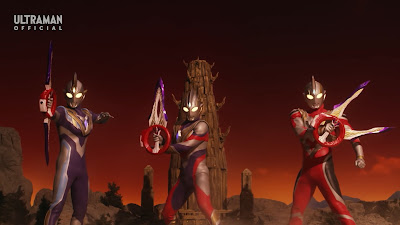

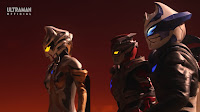




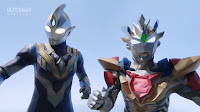


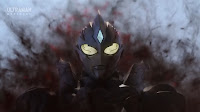
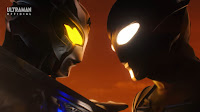
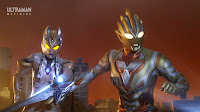

6 comments:
Definitely not looking forward to Decker if it's going to be anything like Trigger. This was easily the most lacking in heart of any toku I've seen in a long time.
Any ideas on how you would have fixed Trigger?
Why did you change your ranking system? The avoid/disappointig/average/recommended/must watch one was perfect!
I would love a modern Ultraman series that actually stood on its own and wasn't just references and callbacks to other Ultraman shows. Or if there are callbacks, then they should be more organic, which I cannot say for the recent Ultraman shows I have watched.
I liked watching Trigger, but like you I also have huge problems with the show as well. I think that Tiga, despite being almost entirely episodic versus Trigger's emphasis on the plot is a much better executed series and sans the original Ultraman tribute, stands all on its own.
I'll go one step further and say I didn't like Kengo either. To be honest, most main Ultraman characters are very bland and Kengo was no different. I know Tokusatsu shows are intended for children, but they can do better with how they write the characters and treat their audience with more respect.
I understand that there are a lot of people who like the lore and fanservice. I was ultimately very disappointed that Trigger wasn't a series that could be its own thing. Like so much recent Ultraman that I've seen, it's reliant on the past too much.
Attempting to streamline the reviews a bit and I've wanted to drop the words for a while now as I'm not keen on summing things up as basically as that any more. I've been toying with dropping ratings altogether for a while now, but this seemed like the best middle of the road solution for now.
- Drop the Z episodes (I liked them but don't feel they were needed)
- Drop the UGF tie in (I don't mind Ribut staying but work him in another way)
- Make Shizuma a Tiga legacy character
- More focus on TDG kaiju rather than Showa ones
- Focus epsiodes for the other GUTS-Select members
I can think of other ways, but those would be my main changes!
Post a Comment